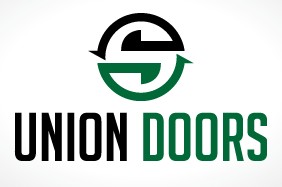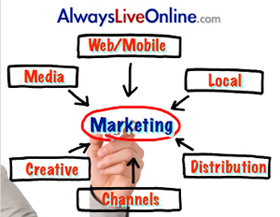The Highly Evolved B.S. Meter of the 21st Century Consumer
“Who you are speaks so loudly I can’t hear what you‘re saying.”
-Ralph Waldo Emerson
Many of the people I work with are aviation professionals with military backgrounds. They have the most highly-evolved B.S. meters of any group of customers I’ve ever seen and they don’t bother to abbreviate the term.
This poses a problem for those of us in marketing who, if we know the history of our profession and are honest about it, are pretty well educated on the topic. We can quote volumes of case studies in the concept of B.S.
The Evolution of the B.S. Meter
Traditional marketing depends on getting the attention of a potential customer and convincing him or her to buy something. This used to be a pretty simple task. People believed the things that nicely-dressed spokespersons told them on the major T.V. networks, and believed the official-sounding pronouncements they read in the newspapers.
Watergate, Vietnam, Erin Brockovich, the house flipping phenomenon, Bernie Madoff, Goldman Sachs, “I can get you twelve thousand Twitter followers in 24 hours” and a million other shining examples of B.S., large and small, have caused distrust of government, corporations, institutions and marketing messages to become part of our cultural DNA. Our kids have evolved to the point where it’s hard to “sell” them on eating their vegetables and doing their homework. (Being parents, you see, we are part of the “establishment” and therefore presumed to be up to no good until proven otherwise.)
Of course, consumers don’t HAVE to believe marketing messages. Consumers have MANY choices for every possible purchasing decision. If one company gives us the slightest blip on the B.S. meter, there are plenty of alternatives to choose from.
It’s gotten to the point where it’s very difficult to convey even essential, valuable information because it’s hard to make people believe anything these days, even if it’s (gasp) true! Companies that haven’t invested in building trust with their perspective customers have trouble even giving away free samples or consultations.
Years of shady practices have caught up with corporations and marketing professionals, and if we want to sell things, we have to pay the price, even if we didn’t personally cause the problem.
Meters Giving Off False Positives (BS Detected)
The problem with these hair-trigger B.S. meters is that it has become difficult to convince anyone of anything.
Two years ago, it took a trusted friend and colleague three months of badgering to get me to quit building websites in HTML and start using a free program called WordPress, which has cut down the amount of time and money spent building and maintaining them to a fraction of what it once was. Why didn’t I switch sooner? Because it sounded too good to be true. My B.S. meter was lit up like a Christmas tree. It was setting off the alarm on a false positive.
B.S. Meter Tripwires (and how to avoid the false positives)
Fancy corporate vocabulary. Leveraging, monetizing, Adding “izing” to pretty much any word besides “optimizing” (in the search engine optimization category, of course) or using phrases like “best of breed,” “push the envelope” and “reinvent the wheel” are terms that can set off the meter, even when used by innocent and well-meaning companies or their marketing professionals.
The “business English” we’ve all been trained to use in memos and reports, unfortunately, is often the WRONG thing to include in marketing messages if we expect to be believed.
Overblown promises. My husband had a hard time getting a date when he was young and single because he (honestly) told women he liked to fly airplanes, scuba dive and ski. It seems women thought he was full of B.S. He was much more successful after he “toned it down” and started talking like a regular guy.
We’ve found that even the most scrupulously honest companies have a difficult time being believed if their promises seem over-the-top.
Hit and run marketing. The first advertisement you run, the first mailer you send out, the first trade show you attend is likely to be your least effective. This is especially true if the cost, time or risk factors involved with your product are high. The first reaction is likely to be “who the heck is the new guy?” We collected about a hundred leads at our first NBAA convention a year and a half ago, but NONE of those leads became clients until seven months later. Since that time, a lot of those leads have turned into great clients and referrers of clients. It took months of emails, newsletters, and articles like this one that eventually convinced them that we walk our talk. Or at least that we were persistent enough that they should give us a chance to prove it.
We’ve learned that it’s important to give clients or customers a low-cost, low-risk way to “test drive” your methods and philosophy. It’s also important to maintain a persistent, low-key “drip” of consistent marketing messages. We also use several different media, so that people hear from us by postcard, printed newsletter, magazine ad, and social media. Over time, prospective customers learn that we’re diligent, persistent, and going to be around for the long haul.
Being “inhumanly perfect.” Perfectly polished corporate messaging sends loud B.S. signals. If your website showcases all of your successes (which it should) but none of your challenges, you sound like that kid in school that got a perfect score on every test and was good at every sport. It’s hard to relate to, hard to be friends with, and for those of us who know ourselves to be all too human, hard to believe.
When Boeing received a drawing from eight-year-old Harry Winsor suggesting a design for an airplane that could “awesomely, double as a fire truck” their first response was to follow their process, perfectly. They sent young Mr. Winsor a form letter that said “Like many large companies, we do not accept unsolicited ideas.” Perfect response. Perfect, but not exactly warm, human, caring or appropriate.

Image from http://blogs.seattleweekly.com/dailyweekly/2010/05/boeing_sends_form_letter_in_re.php
But then Boeing did something extraordinary. They admitted the mistake. Todd Blecher, a spokesman for Boeing, responded to conversations on Twitter about the story. “We are expert at airplanes but novices in social media. We’re learning as we go.” Boeing belatedly called young Harry about his drawing and treated him to a tour of the Museum of Flight.
Could honesty be coming back into style? Even in marketing and PR?
Honesty has always been in style. But sometimes it’s hard to have honesty recognized as such in a world full of B.S..
We CAN be recognized as believable. But it will take some changes in the way we sell products and services. We can start by using straightforward language rather than corporate euphemisms. We can tone down promises that might seem hard to believe. We can design our marketing campaigns to convert customers over a longer period of time and using a variety of media, rather than depending on the single “killer ad” or the huge-budget short-term “media blitz” that the ad agencies promise will lead to huge profits. That might work for kitchen tools or blankets with sleeves, but those of us in large ticket, business to business and/or aviation marketing need to spend more time building trust.
And we must be transparent about our challenges and imperfections.
All huge departures from the “textbook” marketing we learned in school. But all changes for the better, we think.
Personally, I like the healthy skepticism, although it makes my job harder as a marketing professional (and as a parent!) I’m glad companies, governments and and other institutions are being held accountable.
May the good guys always win!





















You must be logged in to post a comment.